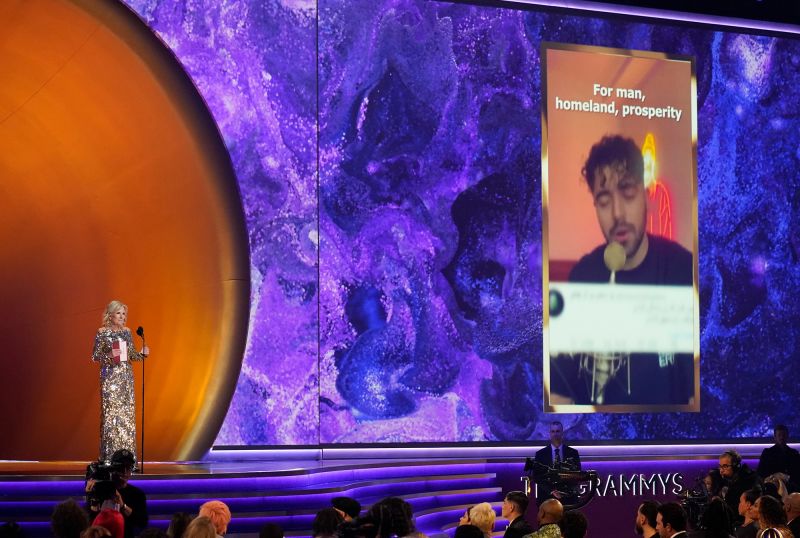
Iranian Pop Star Jailed for Protest Song, Forced to Write Anti-US Anthem, Rights Group Claims

Shervin Hajipour, an Iranian pop star known for his protest anthem during the 2022 mass protests, has been handed a three-year and eight-month prison sentence. Reports from a human rights group indicate that he is being compelled to compose a song highlighting US 'atrocities.'
Iranian singer Shervin Hajipour, known for his hit song during the 2022 mass protests, has been given a three-year and eight-month prison sentence. He has also been instructed to compose a song focusing on US “atrocities,” as reported by a human rights organization.
According to a report from the Human Rights Activists News Agency (HRANA) on Friday, the 27-year-old Grammy Award winner was charged with “inciting unrest against national security” and “spreading propaganda against the regime.”
He was questioned by the police in 2022 for allegedly encouraging protests just two days after sharing a video of himself singing his song "Baraye" on Instagram. This incident occurred amidst a government crackdown on dissenting voices in the country.
Hajipour, the artist who received international acclaim and a Special Merit Award for Best Song for Social Change at the 2023 Grammys for "Baraye," was arrested by security forces in Sari, Mazandaran Province in September 2022. He was later released on bail in October of the same year.
His song quickly became the anthem for protests following the tragic death of 22-year-old Mahsa Amini. These protests eventually grew into a larger movement advocating for more freedoms and even the overthrow of the state.
US first lady Jill Biden accepts the award for best song for social change on behalf of Shervin Hajipour for "Baraye."
US first lady Jill Biden accepts the award for best song for social change on behalf of Shervin Hajipour for "Baraye."
(Chris Pizzello/Invision/AP)
The court's decision goes beyond just the prison sentence for Hajipour. Additional penalties have been imposed to show the seriousness of his actions, according to HRANA.
For the next two years after his imprisonment, Hajipour is not allowed to leave Iran. He must also participate in activities that support the Islamic Revolution, such as creating content about culture, science, and art, and making a song about the "USA's crimes against humanity."
Hajipour needs to summarize two books about the status of women in Islam and showcase human rights violations by the U.S. government over the past century, according to HRANA.
He expressed gratitude to his lawyers and management team by posting a picture of the verdict on his Instagram account.
Last month, a resident of northern Iran released a controversial song and music video. The lyrics reference his recent clashes with authorities, calling himself the “trash” who had no one to bail him out. Despite being forbidden to sing in public, he declares that he will remain in Iran to help rebuild the city and has no plans to leave the country.









